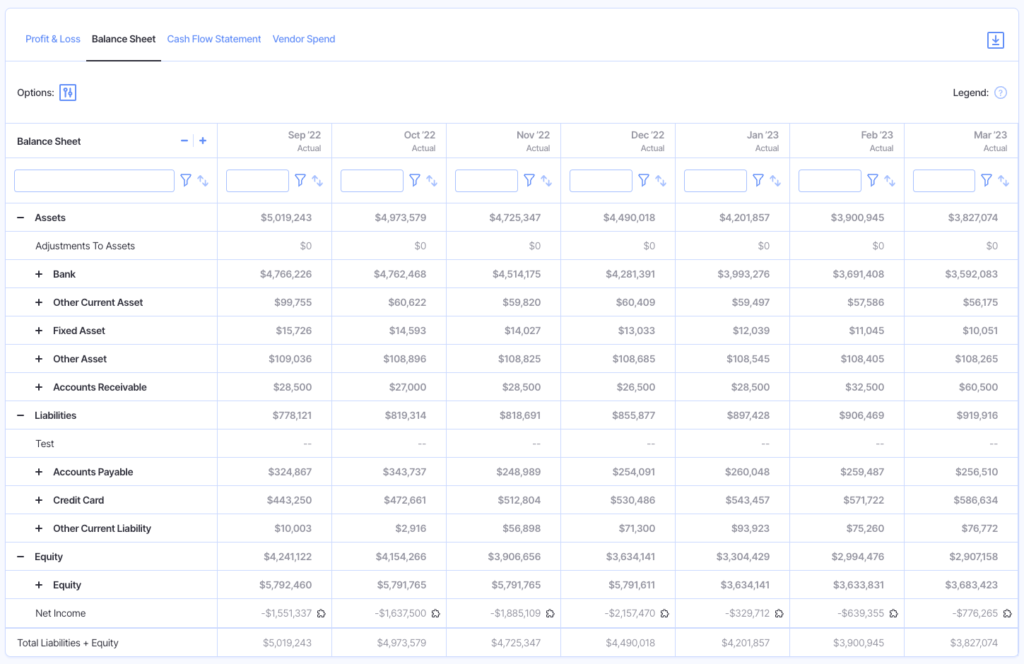As a small business owner in Ireland, it’s important to understand your obligations when it comes to financial reporting. Failure to comply with these requirements can result in penalties and fines, and in some cases, may even lead to the closure of your business. In this article, we’ll discuss the key financial reporting requirements that small businesses in Ireland must meet.
The first step in ensuring compliance is to maintain accurate financial records. This includes keeping track of all income, expenses, and assets, as well as any debts or liabilities your business may have. You must also maintain records of any transactions that involve the transfer of funds, such as payments to suppliers or customers.
In addition to keeping accurate records, you must also prepare and submit financial statements. These statements should provide an accurate picture of your business’s financial performance and position. At a minimum, you must prepare an annual set of financial statements, including a profit and loss account, balance sheet, and cash flow statement.

The Companies Act 2014 sets out the legal requirements for financial reporting for all companies operating in Ireland. If your business is a limited company, you must comply with these requirements. However, even if you are not legally required to prepare financial statements, it is still a good practice to do so. It will help you keep track of your business’s financial health, identify areas for improvement, and make informed decisions about the future of your business.
In conclusion, financial reporting is a crucial aspect of running a small business in Ireland. By keeping accurate records and preparing financial statements, you can ensure compliance with Irish law and make informed decisions about the future of your business. If you are unsure about your obligations, seek professional advice from a qualified accountant or financial advisor.
Do self-employed people have financial reporting requirements?
The answer to this question depends on the legal structure of the self-employed person’s business.
If the self-employed person operates as a sole trader, they are not legally required to submit financial statements to any regulatory body. However, they are still required to keep accurate records of their income and expenses for tax purposes, and may need to provide this information to the Revenue Commissioners if requested.
If the self-employed person operates as a limited company, they are required to prepare and file financial statements with the Companies Registration Office (CRO) and the Revenue Commissioners. The financial statements must comply with the Companies Act 2014 and must include a balance sheet, profit and loss account, cash flow statement, and notes to the financial statements.
In summary, if the self-employed person operates as a sole trader, they are not legally required to submit financial statements. However, if they operate as a limited company, they must prepare and file financial statements with the CRO and the Revenue Commissioners. Regardless of the legal structure, all self-employed people must keep accurate records of their income and expenses for tax purposes.
What are financial statements?
Financial statements are formal records of a company’s financial activities, performance, and position. They are prepared at the end of an accounting period, usually annually, and provide a summary of a company’s financial performance during that period. The financial statements are typically prepared by the company’s accountant or finance team and are intended to provide useful information to stakeholders, including investors, creditors, and government agencies.
The three primary financial statements are the balance sheet, income statement (also known as a profit and loss statement), and cash flow statement.
The balance sheet provides a snapshot of a company’s financial position at a specific point in time. It lists the company’s assets, liabilities, and equity, and shows how much the company owns, lowes, and is worth.

The income statement shows a company’s financial performance over a specific period, usually a year. It lists the company’s revenues, expenses, and net income or loss.
The cash flow statement shows the inflows and outflows of cash and cash equivalents during a specific period, providing insights into a company’s liquidity and ability to generate cash.
Together, these financial statements provide valuable information to stakeholders about a company’s financial health and performance. They are often used to make decisions about investing, lending, or doing business with a company.
Do I need an accountant to prepare my Financial Statements?
While it is not a legal requirement for a small business owner to hire an accountant to prepare their financial statements, it is generally recommended that they do so. Preparing financial statements can be a complex and time-consuming process, and an experienced accountant can ensure that the statements are accurate, compliant with relevant accounting standards, and provide valuable insights into the company’s financial performance.
An accountant can also assist with interpreting the financial statements and using them to make informed decisions about the business. They can help identify areas where the business can improve its financial performance, optimise tax strategies, and ensure compliance with legal and regulatory requirements.
Additionally, hiring an accountant to prepare financial statements can help small business owners save time and avoid costly errors. An experienced accountant can navigate complex accounting standards and regulations, freeing up the business owner’s time to focus on running and growing their business.
In summary, while it is not legally required, it is highly recommended that small business owners hire an accountant to prepare their financial statements. Doing so can help ensure accuracy, compliance, and provide valuable insights into the business’s financial performance.
Do small businesses need to have their financial statements audited?
The requirement for a small business to have their financial statements audited depends on a number of factors, such as the legal structure of the business, its size, and its activities.
In Ireland, limited companies are legally required to have their financial statements audited if they exceed certain thresholds. Under the Companies Act 2014, a company is required to have its financial statements audited if it meets at least two of the following three criteria in the preceding financial year:
- Annual turnover greater than €12 million
- Balance sheet total greater than €6 million
- Average number of employees greater than 50
If a company meets these criteria, it must appoint an external auditor to audit its financial statements and provide an opinion on their accuracy and compliance with relevant accounting standards.
Small businesses that do not meet these thresholds are not legally required to have their financial statements audited. However, they may choose to do so voluntarily as a way to provide greater assurance to stakeholders or to comply with lender or investor requirements.
In summary, small businesses in Ireland are not generally required to have their financial statements audited unless they exceed certain thresholds. However, businesses may choose to have their financial statements audited voluntarily to provide greater assurance or comply with stakeholder requirements.
Software that can help prepare or automate your financial statements
There are several software options available that can help small businesses prepare or automate their financial statements. These software solutions can save time and improve accuracy, allowing small business owners to focus on running and growing their businesses. Here are some popular options:
QuickBooks is a cloud-based accounting software that can help small businesses manage their finances, including preparing financial statements. The software can automatically generate balance sheets, income statements, and cash flow statements, and allows users to customise the statements to their needs.
Xero is another cloud-based accounting software that can help small businesses manage their finances and prepare financial statements. The software allows users to generate balance sheets, income statements, and cash flow statements, and provides tools for analysing financial performance.
Wave is a free cloud-based accounting software that can help small businesses manage their finances and prepare financial statements. The software can generate balance sheets, income statements, and cash flow statements, and allows users to customise the statements to their needs.
FreshBooks is a cloud-based accounting software that can help small businesses manage their finances and prepare financial statements. The software can generate balance sheets, income statements, and cash flow statements, and provides tools for analysing financial performance.
Zoho Books is a cloud-based accounting software that can help small businesses manage their finances and prepare financial statements. The software can generate balance sheets, income statements, and cash flow statements, and allows users to customise the statements to their needs.
Financial statements benefits
Financial statements provide several benefits for businesses and stakeholders, including:
Provides insight into financial performance
Financial statements provide several benefits for businesses and stakeholders, including insights into financial performance, decision-making support, transparency, compliance with legal and regulatory requirements, and opportunities for improvement.
Facilitates decision-making
Financial statements provide valuable information that can help stakeholders make informed decisions about investing, lending, or doing business with a company.
Enhances transparency
Financial statements promote transparency by providing stakeholders with a clear and accurate picture of a company’s financial position and performance. This can help build trust with investors, customers, and other stakeholders.
Enables compliance with legal and regulatory requirements
Financial statements are often required by law or regulation, such as the Companies Act 2014 in Ireland. By preparing and submitting financial statements, businesses can ensure compliance with these requirements.
Helps identify areas for improvement
Financial statements can be used to identify areas where a company can improve its financial performance, such as reducing costs, increasing revenue, or improving cash flow.


